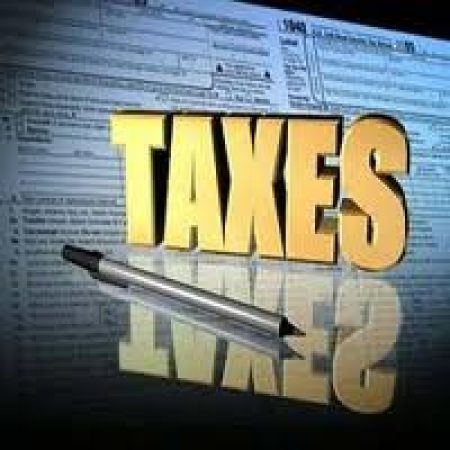 Now that the nagging issue of our transportation needs has been settled for the foreseeable future, it is time to turn to serious tax reform that can grow our economy, provide more spending money for our citizens, and relieve businesses of some truly job-killing taxes.
Now that the nagging issue of our transportation needs has been settled for the foreseeable future, it is time to turn to serious tax reform that can grow our economy, provide more spending money for our citizens, and relieve businesses of some truly job-killing taxes.
This can be done in a creative and revenue neutral fashion and it can have dramatic impact on our state’s economy and on our competitive position with our sister states.
The Thomas Jefferson Institute for Public Policy has been working for two years on a major new Tax Restructuring proposal for Virginia and the General Assembly has taken notice and is seriously looking at this idea. Over the next few months, several hearings will be held by the Manufacturing Development Commission and the Small Business Commission – including the Virginia Association of Counties and the Virginia Municipal League – to review the Jefferson Institute’s tax restructuring study (here) and its potential to help our state’s economy. The goal is to have a serious tax reform proposal for the next Governor and the General Assembly to review and vote on next year.
The Jefferson Institute has worked with top economists, important business groups, the Governor’s Office and key political leaders as it developed this tax restructuring idea. And although no legislation has been crafted, and won’t be until after this year’s public hearings are completed, it is clear that a large group of interests are fascinated with this tax restructuring idea.
The Jefferson Institute study clearly shows that there is one tax reform scenario – identified as Scenario 6 — that will have the greatest impact on our economy.
This Scenario 6 does the following: eliminates the state’s bottom two personal income tax brackets, reduces the final two brackets by 9% and 13% respectively, and eliminates the three job killing taxes mentioned above while making whole the cities and counties that now collect those taxes. This is paid for by broadening the sales tax to those segments of our economy that have been exempt in the past except all health care services would remain sales tax exempt.
And the results are dramatic over the next five years: 79,000 new jobs will be created, $287 million in new business investment will be made, real disposable income (dollars in our pockets) will increase by $2.85 billion and the state’s gross domestic product will increase by $8.4 billion.
And all of this economic good is produced by tax restructuring that is, overall, revenue neutral!
Noted George Mason University economist, Robert Fuller, said last week that Virginia will likely lose 154,000 jobs thanks to the reduction of federal spending. Virginia will be uniquely hit by these reductions because so much of our gross domestic product is tied to the federal government. And the Thomas Jefferson Institute’s tax reform is projected to create 79,000 new jobs over the next five years – more than half of the jobs that will be lost. This proposal is serious and its results critical to our state.
This is one of those rare opportunities that is a win-win for our state. By expanding the current sales tax to most of the industries that do not now collect it from individual customers, every individual taxpayer can be substantially helped, the competitive business environment for Virginia enhanced and our state and local governments will not lose a penny because of the elimination of business taxes that they now collect. Not a penny.
The Thomas Jefferson Institute study, “Tax Restructuring in Virginia: Revenue Neutral Path for Improving Virginia’s Economy,” was researched by Chmura Economics and Analytics of Richmond and a computer model was built to test various scenarios for this tax restructuring concept by the economists at the Beacon Hill Institute (BHI), an independent public policy foundation at Suffolk University in Boston, Massachusetts. Tax models by the Beacon Hill Institute have been used by the Jefferson Institute in the past with positive feedback from legislators and executive branch leaders of both political parties.
Nine economic scenarios were run through the tax model. The goal was to find a restructuring plan that would best help grow the economy, help our hard working citizens and not further burden our neighbors with higher overall taxes. This was accomplished by broadening the sales tax while keeping all health and medical services sales tax exempt. Each of the nine suggested tax restructuring plans outlined in this report are revenue neutral. Clearly Scenario #6 is the best for our economy.
The Jefferson Institute study shows that the unpopular gross receipts tax on business (known as the Business Professional Occupation Licensing or BPOL), the Machine and Tool Tax and the Merchants Capital Tax can be eliminated, and the local governments that collect these taxes can be “made whole” through the broadening of the sales tax to industries currently exempt, and substantial personal income tax reductions can be achieved. Indeed the bottom two tax brackets can be totally eliminated.
It is time for Virginia to look at its out-dated and antiquated tax code and bring it into the 21st Century. The BPOL tax, for instance, was started almost 200 years ago in order to pay Virginia’s share of the War of 1812. We now have the facts in this new study and our tax model to dramatically improve Virginia’s economy while giving every tax payer a substantial reduction in their state income taxes. We encourage our leaders to pursue a sensible tax restructuring that can help everyone in our state.

Email this author






